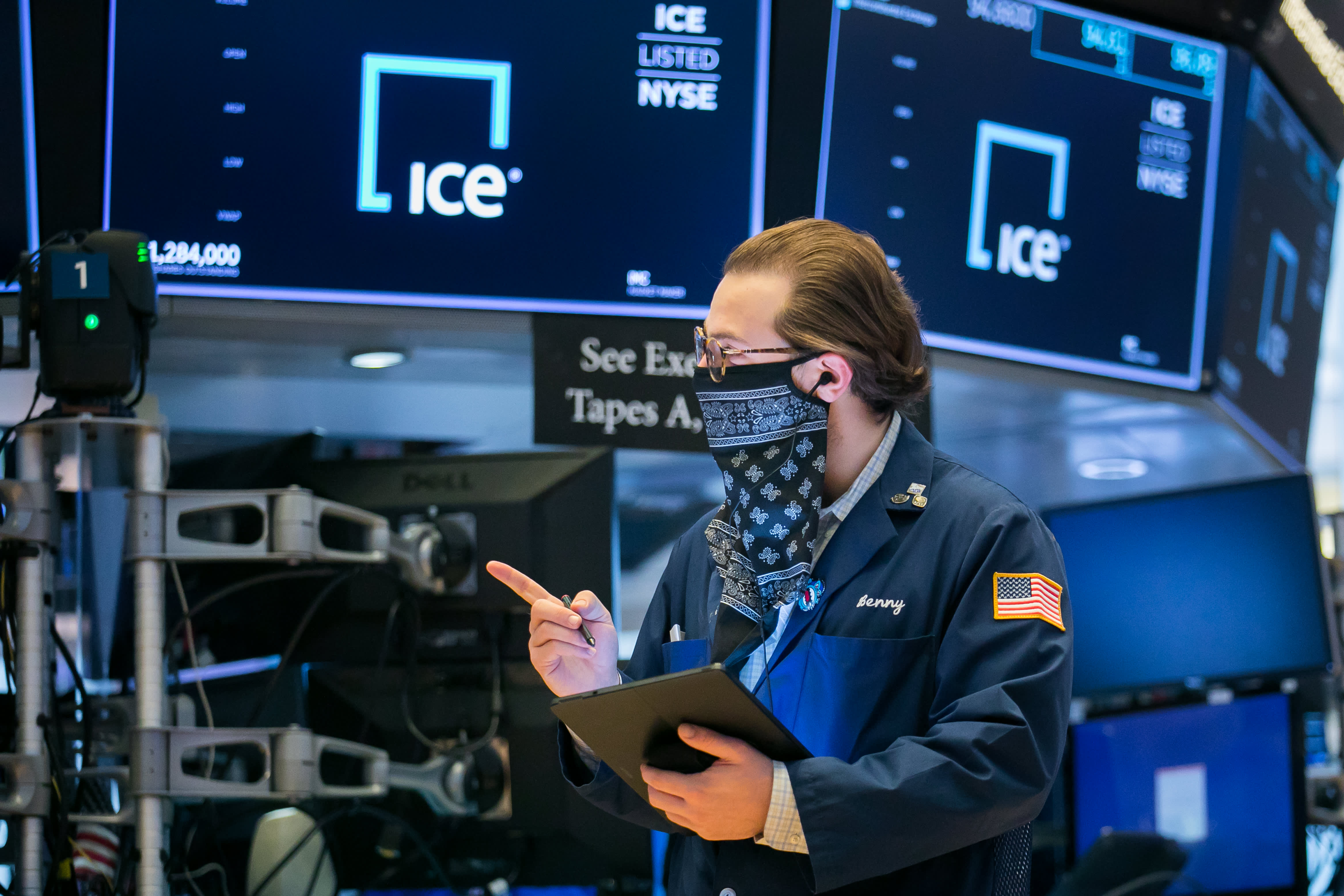Dow futures fall more than 200 points as fresh virus restrictions raise concerns about recovery

Stocks futures fell in overnight trading on Thursday as rising new coronavirus cases cast doubt on a swift economic recovery.
Futures on the Dow Jones Industrial Average dropped 260 points, implying a loss of more than 250 points at Friday’s open. S&P 500 futures slid 0.9% and Nasdaq 100 futures dipped 0.4%.
The overnight action followed slight gains on Wall Street led by tech shares on Thursday. The Dow eked out a 40-point gain, while the S&P 500 and the Nasdaq rose 0.4% and 0.9%, respectively. It marked the first positive day in three for the major averages.
The market’s rally to records slowed down in recent days as more immediate concerns about the worsening pandemic overshadowed optimism toward a viable vaccine.
The U.S. seven-day average of daily new Covid-19 infections now stands at 161,165, according to a CNBC analysis of John Hopkins data, 26% higher than a week ago. Many states have rolled back reopening plans and implemented fresh restrictions to curb the spread.
California governor Gavin Newsom on Thursday issued a “limited Stay at Home Order” on a majority of the state’s residents, requiring nonessential work and gatherings to cease between 10 p.m. and 5 a.m. Meanwhile, the Centers for Disease Control and Prevention advised Americans against traveling for Thanksgiving.
“The market is churning a bit as investors digest the recent ramp higher, grapple with a worsening in the Covid-19 spread,” Tony Dwyer, Canaccord Genuity’s chief market strategist, said in a note.
President-elect Joe Biden said Thursday he will not order a national shutdown as the country heads into a tough holiday season, calling the measure “counter-productive.”
Sentiment turned slightly better on Thursday after signs that lawmakers would resume talks over a new Covid-19 relief bill amid the worsening pandemic. Sen. Chuck Schumer, D-N.Y., said Thursday that Senate Majority Leader Mitch McConnell, R-Ky., has agreed to restart negotiations.
The Treasury Department is seeking to end a handful of the Federal Reserve emergency lending facilities that expire at the end of 2020, drawing pushback from the central bank saying the programs continue to serve an important role to support the vulnerable economy.
Still, some on Wall Street believe the market will eventually enjoy a sustainable rally after the near-term turbulence as the global economy recovers from the recession.
“The backdrop of historic money availability and continued global economic recovery suggest any weakness should prove an opportunity to add exposure in the global economic recovery theme that favors small cap stocks, economically sensitive sectors, emerging markets, and commodities,” Dwyer said.
Subscribe to CNBC PRO for exclusive insights and analysis, and live business day programming from around the world.




